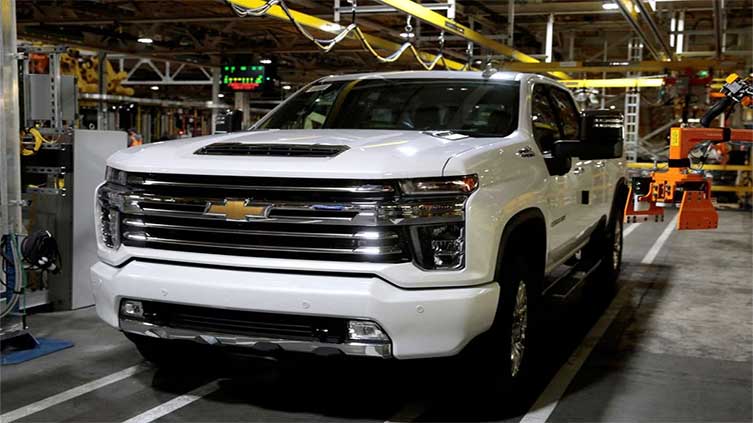GM to invest over $1bn for plants overhaul to boost truck production

Business
GM also expects to start bargaining with the United Auto Workers union for a new contract
(Reuters) - General Motors Co said it plans to invest more than $1 billion to re-tool two manufacturing sites in Flint, Michigan to prepare for a new generation of its internal combustion engine heavy-duty (HD) trucks.
GM has outlined this year a total of $1.7 billion in investments in Flint facilities to support the next generation of its heavy duty pickups.
GM said it will spend $579 million at its Flint Engine Operations to produce a sixth generation of its small block V-8 combustion engine. Another $103.5 million will be spent upgrading a separate Flint facility that supports truck production.
GM's trucks compete with the recently redesigned Ford Motor Co Super Duty and other heavy-duty versions of Stellantis NV's Ram pickup, among the most profitable vehicles sold by the Detroit Three automakers, or any rival.
Last year, GM sold nearly 288,000 trucks with HD pickup sales, which rose 38% from a year earlier.
GM expects to start bargaining with the United Auto Workers union for a new contract with a deadline of Sept. 14 to reach an agreement with it U.S. production workers. Investment to secure jobs is a top union priority.
"When business is booming as it has been for the past decade — due to the hard work of UAW members — the company should continue to invest in its workforce,” Mike Booth, the UAW vice president in charge of the GM department said in a statement regarding the Flint investments.
Just ahead of GM's announcement in Flint, the UAW issued a video in which union President Shawn Fain and the head of the union's GM department slammed the automaker for outsourcing semiconductor production once done at a GM factory in Kokomo, Indiana.
Fain is from Kokomo, and members of his family worked at the GM facility that once employed 15,000 people. The plant now has just 100 workers. In the video, Fain criticizes GM for cutting U.S. semiconductor production in 2017 only to face a shortage over the past two years of semiconductors imported from Asia.

